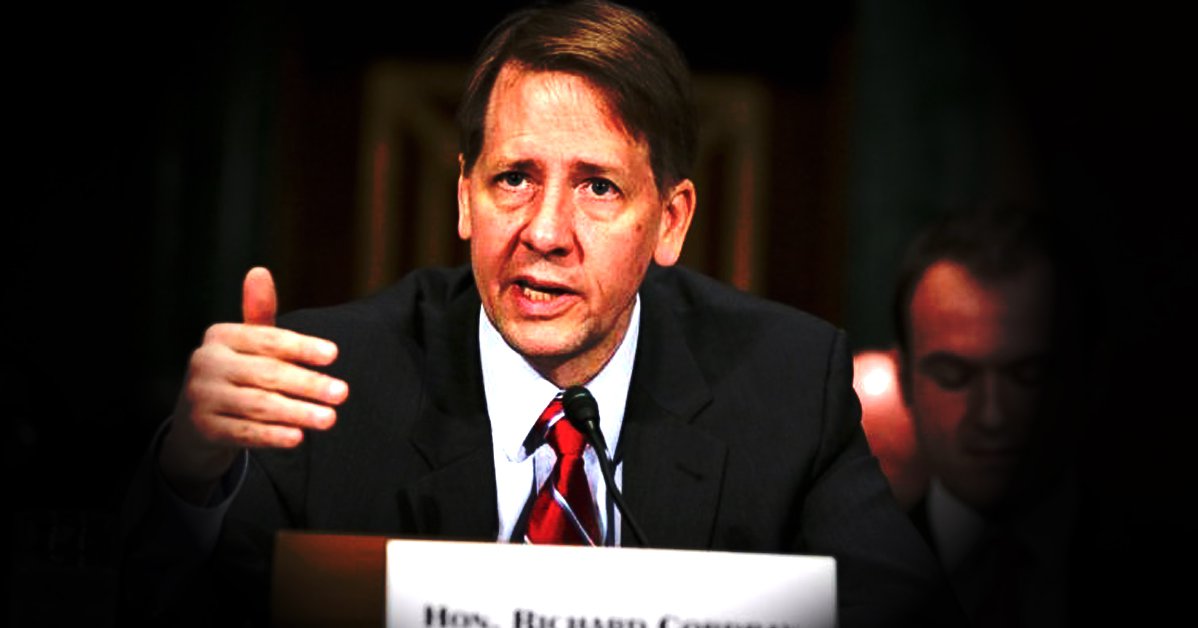New revelations about Washington D.C. Bureaucrat Richard Cordray’s scandal-plagued tenure as head of the Consumer Financial Protection Bureau are raising new questions for his struggling Ohio gubernatorial campaign. It was revealed recently that Cordray’s CFPB was struck by at least 240 confirmed cyber attacks and another 800 suspected hacks, “jeopardizing mortgage information, Social Security numbers, and personal banking information of scores of Americans, according to congressional testimony.”
Cordray’s agency had faced questions for its practice of collecting credit card transactions, home loan applications, and other financial data on a large scale. Now it appears that all of the information they have collected is “subject to being obtained by a malicious third party,” leaving it insecure and open to attack. To make matters worse, the CFPB has also apparently been using third parties to store data, causing further concern about their ability to protect financial information.
While Richard Cordray was spending hundreds of millions of taxpayer dollars on “luxurious renovations” to the CFPB’s headquarters and funneling lucrative federal contract money to his future campaign ad makers, his agency was leaving the financial information of the American people in jeopardy of cyber attack. Instead of protecting American consumers from exploitation as he was appointed to do, Cordray’s mismanagement of the CFPB only put their private information at risk. After failing the public as CFPB director, Cordray can’t be trusted to lead Ohio.
The Washington Free Beacon has more:
The Consumer Financial Protection Bureau, or CFPB, confirmed on Wednesday that it had been struck by at least 240 hack attacks and another 800 suspected hacks, jeopardizing mortgage information, Social Security numbers, and personal banking information of scores of Americans, according to congressional testimony.
Acting CFPB Director Mick Mulvaney disclosed these figures under questioning by Sen. David Perdue (R., Ga.) during a hearing on the agency’s collection of American citizens’ data and the risk this poses due to an increasing cyber threat.
The agency has faced questions over its large-scale collection of Americans’ credit card transactions, home loan applications, and other major financial information.
The issue has topped the congressional agenda in the wake of concerns that rogue nation-states and other actors have hacked the U.S. database, risking the mass collection of sensitive financial information.
Mulvaney disclosed that the agency has been able ‘to document about 240 lapses in our data security.’
‘I want to be careful about what I say, and I would be happy to talk about this more in private, but we have been able to document about 240 lapses in our data security,’ Mulvaney said.
When pressed on the issue, Mulvaney further revealed the agency is investigating another 800 suspected attacks.
‘I think data got out that should not have gotten out,’ Mulvaney said, referring the 240 confirmed attacks. ‘There’s another 800 that we suspect that we haven’t been able to confirm.’
The nature of the hacked information could include personal bank account information as well as Social Security information.
‘800 potential exfiltrations so far?’ Perdue asked. ‘And this could be not just Social Security numbers, but this could be my personal bank account. Is that correct?’
‘It could be a lot of different things, yes. Including those,’ Mulvaney said.
The security situation could be much more dire, according to Mulvaney, who said that ‘everything’ the agency keeps on file is subject to being obtained by a malicious third party.
‘Every single factor that I have as an individual in the United States, every single financial factor can be reviewed and can be collected and can be exposed by the CFPB. Is that correct?’ Perdue asked.
‘Everything we keep is subject to being lost, yes,’ Mulvaney admitted.
Asked to disclose if that type of information has been lost, Mulvaney demurred.
‘I don’t want to say anything, but I’m more than happy to talk to all of you about what I’ve talked with the inspector general about,’ he said, requesting closed door conversations with lawmakers. ‘I think it actually does more harm than good to mention it in a public setting.’
Perdue said the situation is all the more troubling because Congress does not currently have proper authority to audit and perform oversight of the CFPB.
‘I am absolutely concerned about the exposure of our data in this rogue agency that has no responsibility to this Congress,’ Perdue said. ‘I’m very concerned about the security of our financial information that nobody in my state really understands the CFPB is collecting.’
Another troubling issue is that the CFPB allows third parties to store some of its data.
‘I was under the impression we kept most of our own, but I’ve just been told some of our data is kept by third parties,’ Mulvaney admitted.
Previously:






